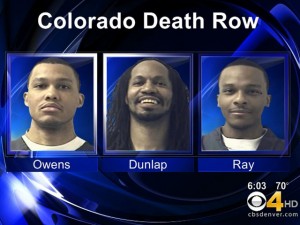
President (To Win Colorado)
See Full Big Line
(D) Kamala Harris
(R) Donald Trump
80%
20%

CO-01 (Denver)
See Full Big Line
(D) Diana DeGette*
(R) V. Archuleta
98%
2%

CO-02 (Boulder-ish)
See Full Big Line
(D) Joe Neguse*
(R) Marshall Dawson
95%
5%

CO-03 (West & Southern CO)
See Full Big Line
(D) Adam Frisch
(R) Jeff Hurd
50%
50%

CO-04 (Northeast-ish Colorado)
See Full Big Line
(R) Lauren Boebert
(D) Trisha Calvarese
90%
10%

CO-05 (Colorado Springs)
See Full Big Line
(R) Jeff Crank
(D) River Gassen
80%
20%

CO-06 (Aurora)
See Full Big Line
(D) Jason Crow*
(R) John Fabbricatore
90%
10%

CO-07 (Jefferson County)
See Full Big Line
(D) B. Pettersen
(R) Sergei Matveyuk
90%
10%

CO-08 (Northern Colo.)
See Full Big Line
(D) Yadira Caraveo
(R) Gabe Evans
70%↑
30%

State Senate Majority
See Full Big Line
DEMOCRATS
REPUBLICANS
80%
20%

State House Majority
See Full Big Line
DEMOCRATS
REPUBLICANS
95%
5%
 August 28, 2015 11:47 AM UTC
August 28, 2015 11:47 AM UTC 15 Comments
15 Comments The Denver Post
The Denver Post 
Hick's propensity is to act after a consensus, and not unilaterally. But how can he not take these two judgments by jurors as the clear mandate to commute the sentences of the 3 currently on death row to life without possibility of parole?
I could be wrong, but I think we'll need to gain back the state senate before any bill repealing the death penalty will get through our state legislature.
Hick will probably act but it won't be until the week between Christmas and New Year's 2018. After Ed Perlmutter has been safely elected governor and doesn't have to face the blowback that the GOP rage machine will crank out when the commutations take place.
True — it's not like the 3 guys in prison are going anywhere soon.
So will Rep. Jovan Melton STFU, let alone apologize for the race-baiting now that a heinous black murderer has been spared the death penalty?
Facts sure are stubborn things. In addition to the fact that all three men on death row in Colorado are African-American, a recent peer-reviewed study demonstrates the racially-biased nature of death penalty prosecutions in Colorado. But, don't let the facts get in the way of an angry screed, right?
I know damn well that the death penalty is racist and that is one of the many reasons I oppose it.
I also know damn well that the reason jurors refused to sentence Holmes to death was because he was crazy, whether legally insane or not, not because he is white, as should any thinking person, let alone one in a position of public trust. Inciting racial animus when it was not an issue in the Homes case is unnecessarily stirring the pot and beneath any elected official.
Blacks have plenty of legitimate gripes in society, but not every case needs to be injected with identity politics.
While in these particular cases the white guy came closer to the death penalty than the black guy, the sad fact that the death penalty has been applied disproportionately according to the race of the murderer and, most especially, the race of the victim/victims remains supported by decades worth of evidence. In any case it's applied with no consistency and based on nothing objective. What these two cases best demonstrate is that the death penalty has always been a crap shoot and it may no longer be possible to get any 12 person jury in Colorado to the required unanimity. Time to join the rest of the civilized world and end state sponsored execution roulette.
The shorter version of that thoroughly-researched study is this:
Statewide, prosecutors have been 5x more likely to seek the death penalty against eligible minority defendants than against eligible white defendants.
All three of the men on death row are not only African-American, but were prosecuted in the 18th Judicial District.
In the 18th Judicial District, prosecutors were 14x more likely to seek the death penalty against eligible minority defendants than against eligible white defendants.
Combined, these equal: no need for apology and no need to STFU.
I came across this debate between Christopher Hitchens and Jesse Jackson with Hadley Arkes and Stephen Markman. Recorded over 15 years ago, the pro-death penalty side relies, in large part, on the argument that the death penalty is a deterrent, isn't racist and isn't capricious, While they may have been able to make their case based on lack of evidence at the time, the facts gathered since then have pretty much overcome their arguments.
About the only thing left of their position is moral outrage and, curiously, abortion. One, moral outrage, is still a legitimate point of contention between the two sides. The other, that since abortion is legal then capital punishment should be legal, is just dishonest.
Rhetorically, of course, Hitchens overshadows the entire panel. Ed Koch as moderator, however, steals the show. I can see why people have strong opinions about him, either way.
Irrelevant? You bet!
The death penalty does not deter heinous crimes. And, there is no real power, or comfort, in retribution.
Yes, sometimes, there's little visible or immediate reward in behaving like grown-ups, that doesn't mean that one shouldn't anyway …
(As for the Govenlooper coming to any decision, well, GLWT …)
Please Democrats, run on abolishing the death penalty in 2016. Bank the state senate on it. Please do that!
Take your leftist politics back to Nebraska, hippie! You can fool Kansas with that crap, but we're Real Americans™ here.
Yes, because running on that issue as a pro-death penalty zealot worked so well for Bob Beauprez!
Moddy loves 'em his vengeful God. All this talk about killin' folk and pre-emptive war is his ilk's Viagra.
Literally Viagra too. So icky.